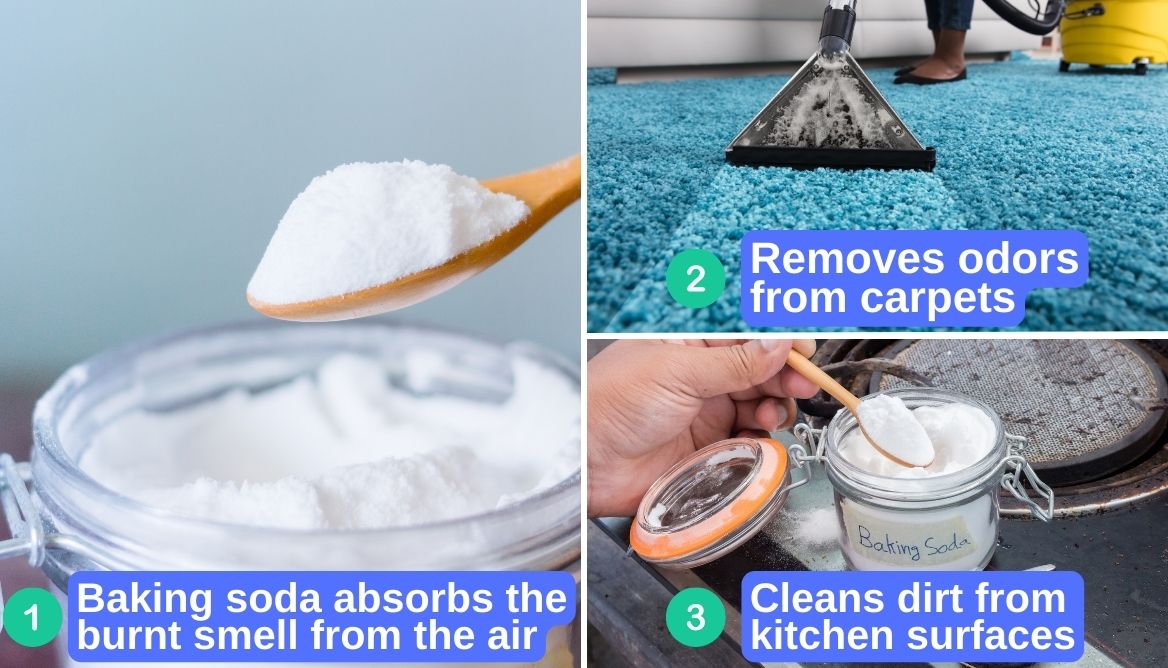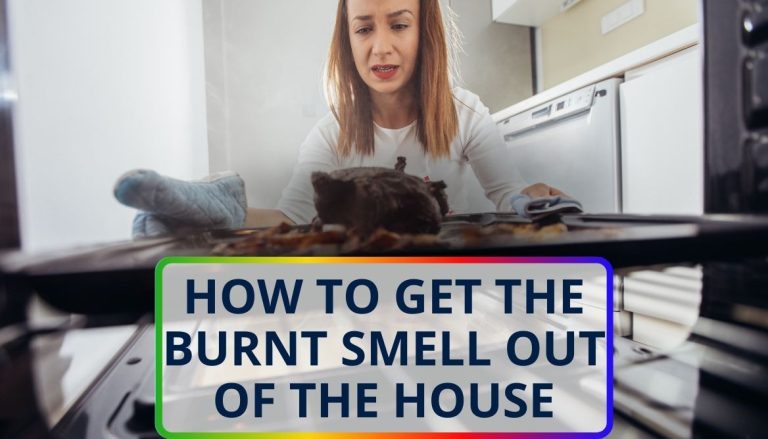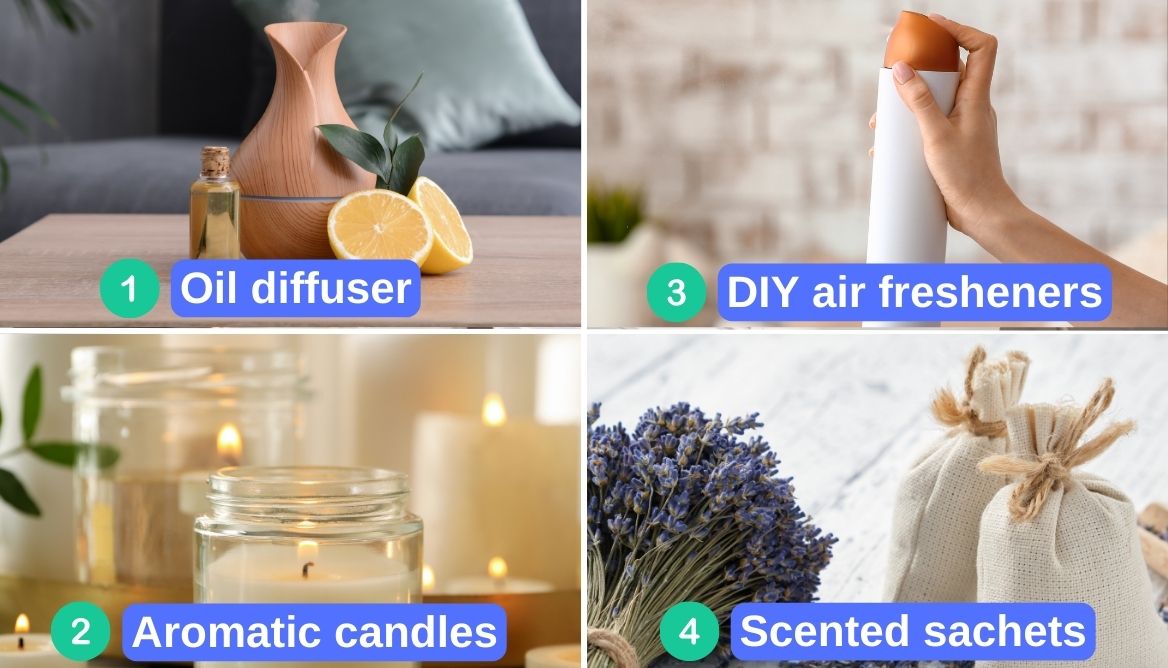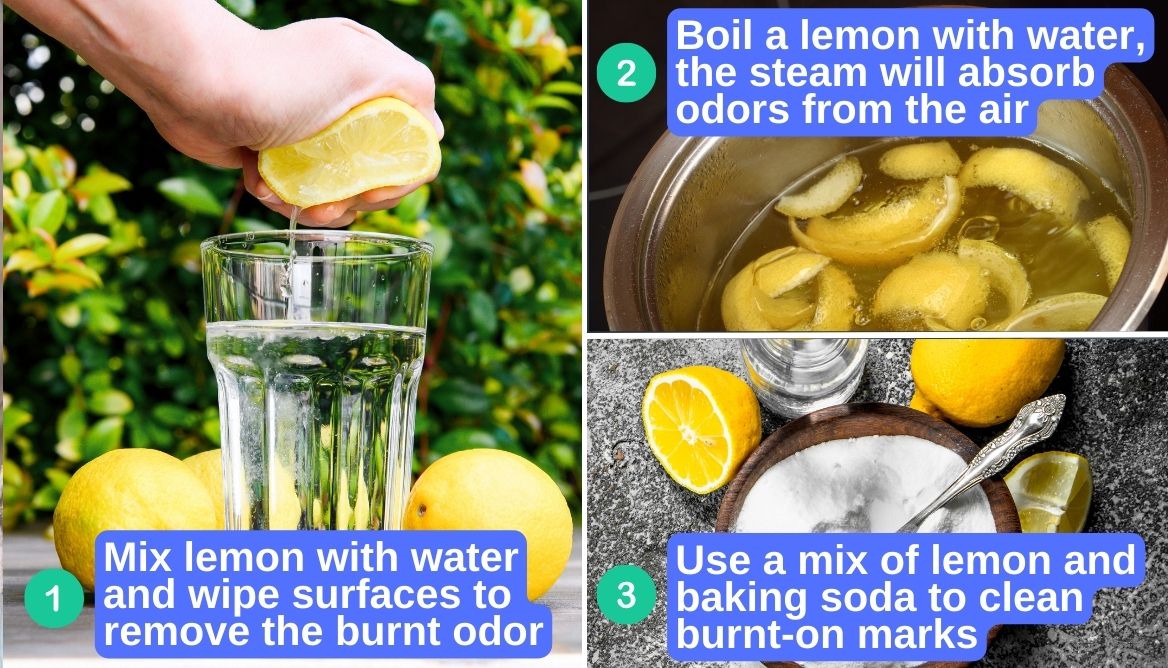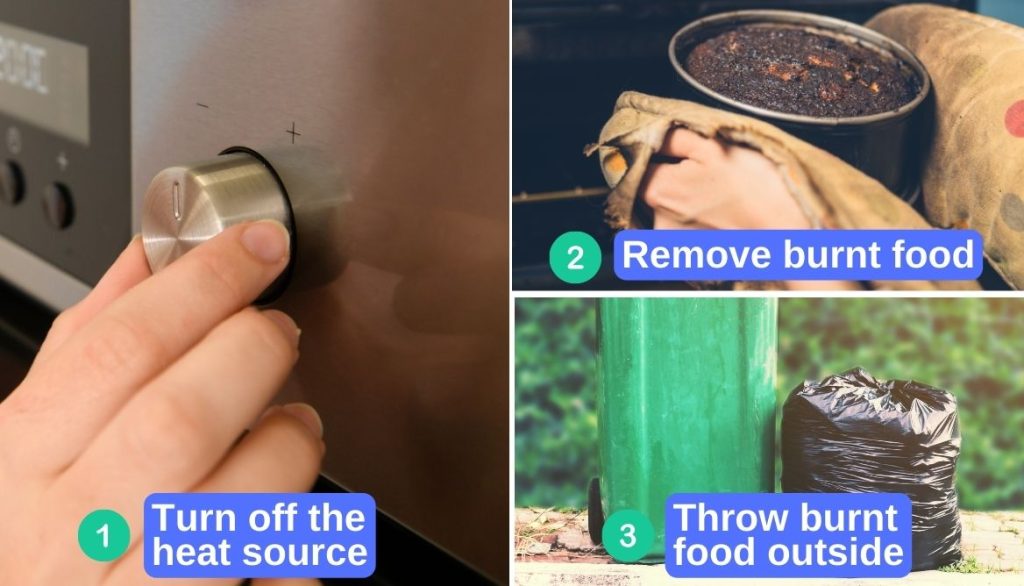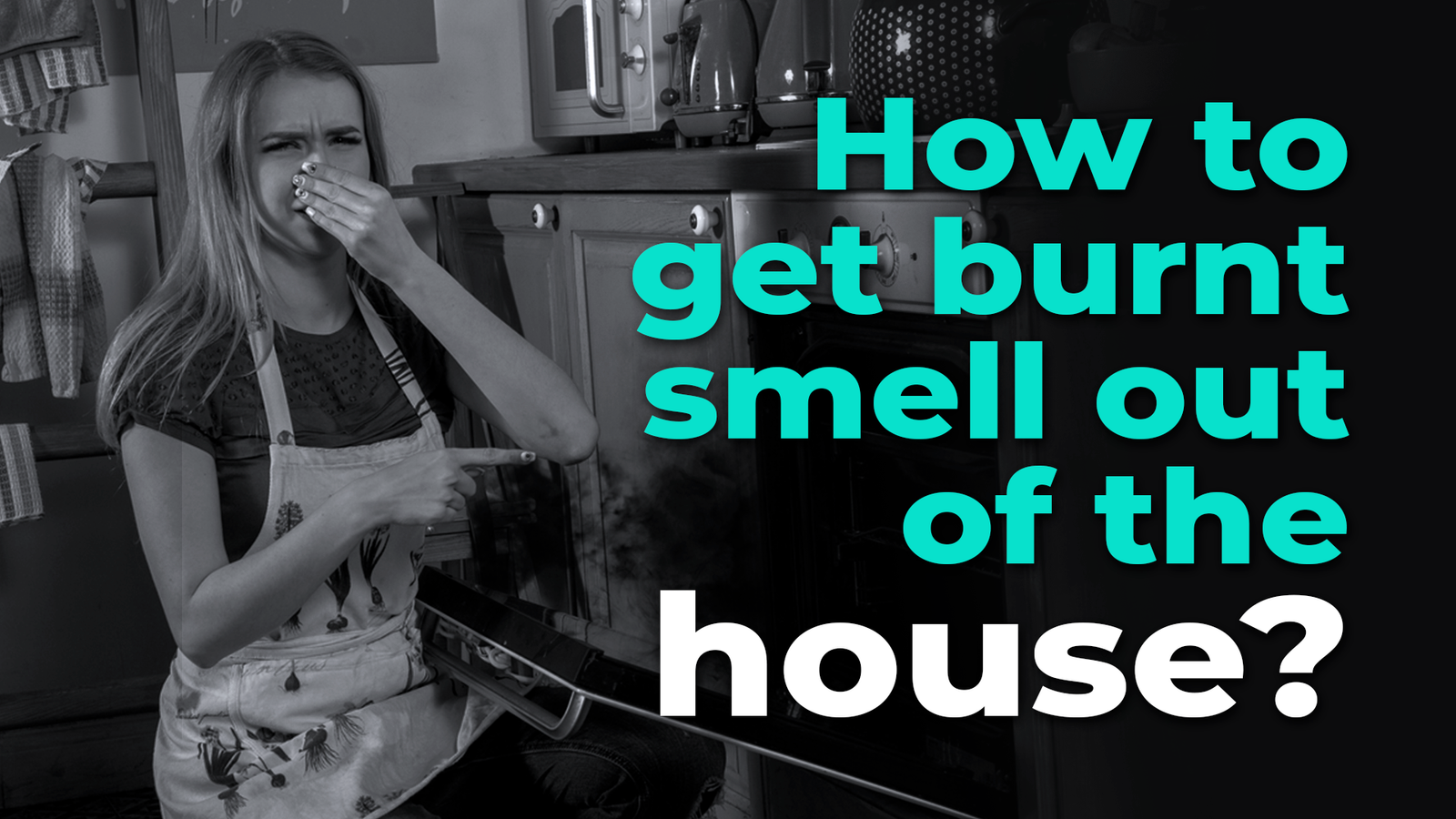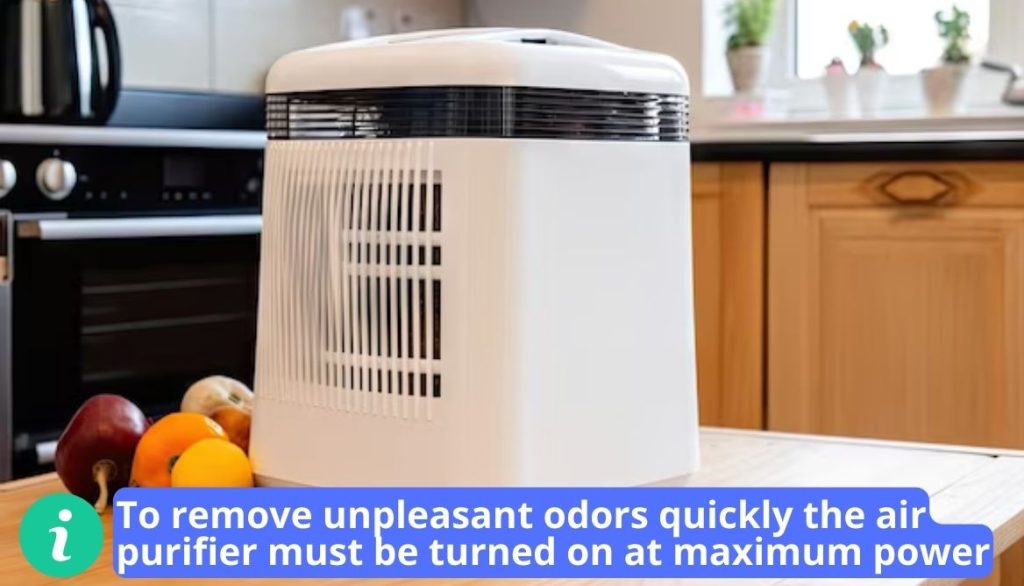How To Get Burnt Smell Out Of House Fast
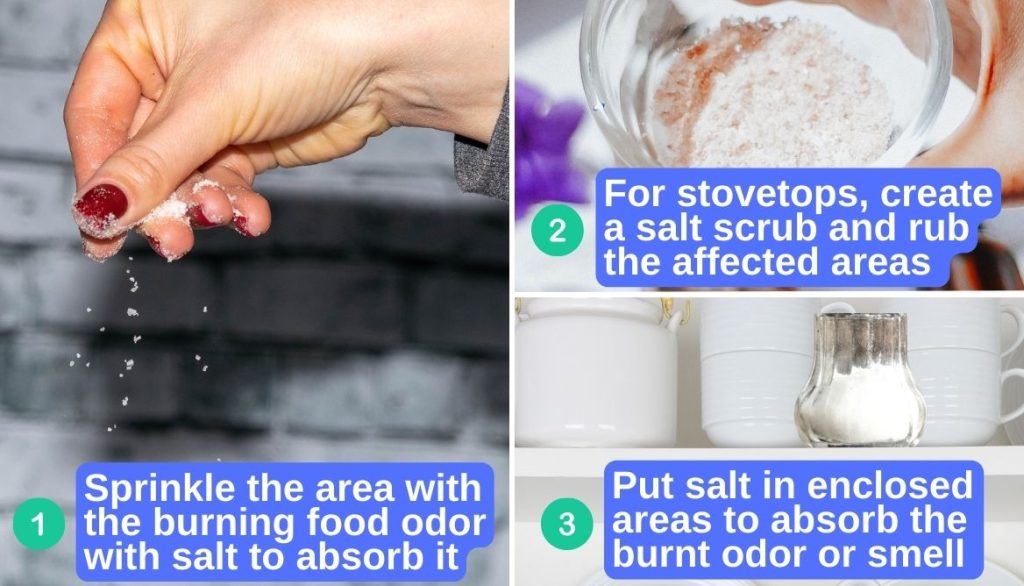
A burnt smell lingering in your home can be incredibly unpleasant, but don't despair! This FAQ will address your most pressing questions on how to quickly and effectively eliminate that stubborn odor.
Frequently Asked Questions: Eliminating Burnt Smells From Your Home
Question 1: What's the first thing I should do after something burns in my house to minimize the smell?
The absolute first step is to stop the source of the burning immediately. This might seem obvious, but speed is crucial. Then:
- Ventilate: Open windows and doors to get fresh air circulating. The more airflow, the better.
- Isolate: If the burn happened in a specific room, close the door to that room after ventilating it to prevent the smell from spreading to the rest of the house.
- Clean the mess: Remove any burnt debris (food, pan, etc.) as soon as it's safe to do so. The longer it sits, the stronger the smell will become.
Remember, acting quickly significantly reduces the intensity and duration of the burnt smell.
Question 2: I've aired out the house, but the burnt smell is still there. What are some quick and easy remedies I can try using things I already have at home?
Fortunately, several household items can help absorb and neutralize burnt odors:
- Vinegar: Place bowls of white vinegar around the affected areas. Vinegar is a natural odor absorber. You can even simmer a pot of vinegar on the stove for about an hour (watching it closely, of course!) to help fill the house with vinegar steam, which will help neutralize the odor.
- Baking Soda: Sprinkle baking soda on carpets, upholstery, and other surfaces. Let it sit for several hours (or overnight) and then vacuum it up. Baking soda is excellent at absorbing smells. You can also place open boxes of baking soda around the house.
- Coffee Grounds: Similar to baking soda, dry coffee grounds can absorb odors. Place bowls of dry, unused coffee grounds around the house.
- Citrus Peels: Simmer citrus peels (lemon, orange, grapefruit) in water on the stovetop. The citrus scent will help mask the burnt smell and freshen the air.
- Activated Charcoal: While not always readily available, activated charcoal is a powerful odor absorber. Place bowls of activated charcoal briquettes (the kind without lighter fluid!) around the house. You can find these at pet stores or home improvement stores (use the type sold for aquariums).
These methods are generally safe and effective for mild to moderate burnt smells. Don't be afraid to combine a few for better results.
Question 3: What about fabrics and upholstery? The smell seems to be trapped in my furniture and curtains. How do I get it out?
Fabrics are notorious for holding onto unpleasant odors. Here's how to tackle them:
- Washable Items: Wash curtains, linens, and other washable fabrics in your washing machine with your regular detergent. Adding a cup of baking soda to the wash can boost the odor-removing power.
- Dry Clean Only: Take dry clean only items to a professional cleaner. Be sure to inform them about the burnt smell so they can take appropriate measures.
- Upholstery: Sprinkle baking soda generously over your upholstery. Let it sit for at least several hours (or preferably overnight) and then vacuum thoroughly. For stubborn odors, consider using an upholstery cleaner designed to neutralize odors. Always test the cleaner in an inconspicuous area first to ensure it doesn't damage the fabric.
- Steam Cleaning: Steam cleaning carpets and upholstery can help to loosen trapped odors. Be sure to ventilate the area well while steam cleaning and allow the items to dry completely to prevent mold growth.
For particularly strong odors, you may need to repeat these steps multiple times. Patience is key!
Question 4: I've tried everything, and the burnt smell is still lingering. What professional cleaning services can help, and when should I consider hiring them?
If DIY methods aren't cutting it, it's time to call in the professionals. Consider these services:
- Professional Cleaning Services: Many cleaning companies offer specialized odor removal services. They have access to industrial-strength equipment and cleaning solutions that can effectively eliminate even the most stubborn burnt smells.
- Ozone Generators: Professional cleaning companies sometimes use ozone generators to eliminate odors. Ozone is a powerful oxidizing agent that can break down odor molecules. However, ozone generators should only be used by trained professionals because high concentrations of ozone can be harmful to your health. Never use an ozone generator in an occupied space.
- Air Duct Cleaning: If the burnt smell is widespread, it may have permeated your HVAC system. Having your air ducts professionally cleaned can remove any lingering odors and improve air quality.
- Restoration Companies: For severe cases, especially those involving fire damage, a restoration company specializing in fire damage repair is your best bet. They can handle everything from odor removal to structural repairs.
You should consider hiring professionals if:
- The burnt smell is strong and persistent despite your best efforts.
- You're concerned about potential health effects from lingering smoke particles.
- The burning incident was significant and may have caused hidden damage.
- You are selling your home. A lingering smell can turn off potential buyers.
Question 5: Are there any preventative measures I can take to minimize the impact of future cooking mishaps and prevent strong burnt smells in the first place?
Absolutely! Prevention is always better than cure. Here are some tips:
- Never leave cooking unattended: This is the most important tip. Most cooking fires start when food is left unattended on the stove or in the oven.
- Use timers: Set timers for everything you're cooking to avoid forgetting about it.
- Keep a fire extinguisher in the kitchen: Make sure everyone in the household knows where it is and how to use it.
- Clean your oven regularly: Built-up grease and food particles can easily catch fire.
- Use proper ventilation while cooking: Turn on your range hood or open a window to help remove smoke and odors.
- Invest in smoke detectors: Ensure you have working smoke detectors on every level of your home and test them regularly. Replace batteries at least once a year.
- Consider a smart oven or microwave: Some newer appliances have features that automatically shut off the oven or microwave if food is burning.
By taking these precautions, you can significantly reduce the risk of cooking fires and minimize the resulting odors.
Question 6: What are the potential health risks associated with prolonged exposure to burnt smells, and how can I mitigate them?
Prolonged exposure to burnt smells, even faint ones, can pose several health risks, especially for individuals with pre-existing respiratory conditions or sensitivities. These risks stem from the particulate matter and volatile organic compounds (VOCs) released during burning:
- Respiratory Irritation: Smoke and soot particles can irritate the airways, leading to coughing, wheezing, shortness of breath, and chest tightness. This is particularly problematic for people with asthma, bronchitis, or COPD.
- Eye Irritation: Smoke can also irritate the eyes, causing redness, burning, and tearing.
- Headaches and Nausea: VOCs released during burning can trigger headaches, nausea, and dizziness.
- Allergic Reactions: Some individuals may experience allergic reactions to smoke particles, resulting in skin rashes, hives, or other symptoms.
- Long-Term Health Effects: In severe cases, prolonged exposure to high levels of smoke can contribute to more serious health problems, such as cardiovascular disease and cancer. While less common from household incidents, it's important to minimize any exposure.
Here's how you can mitigate these health risks:
- Maximize Ventilation: As mentioned earlier, opening windows and doors to increase airflow is crucial. Use fans to circulate fresh air and help remove smoky air.
- Air Purifiers: Invest in a high-quality air purifier with a HEPA filter and activated carbon filter. HEPA filters trap particulate matter, while activated carbon filters absorb VOCs and odors. Place the air purifier in the most affected areas.
- Limit Exposure: If you're particularly sensitive to smoke, try to limit your time in the affected areas. If possible, stay with a friend or family member until the smell is completely gone.
- Wear a Mask: When cleaning up after a fire or spending time in smoky areas, wear a NIOSH-approved N95 respirator mask to filter out harmful particles.
- Consult a Doctor: If you experience any persistent respiratory symptoms or other health problems after exposure to burnt smells, consult a doctor.
- Clean Thoroughly: Thoroughly clean all surfaces in the affected areas to remove soot and ash. Use a damp cloth to avoid stirring up dust.
Question 7: My insurance policy covers fire damage, but does it also cover odor removal? How do I navigate the insurance claims process for this type of situation?
Whether your insurance policy covers odor removal after a fire depends on the specific terms and conditions of your policy. Generally, if the odor is a direct result of a covered peril (like a kitchen fire), odor removal is often covered. However, it's essential to carefully review your policy and contact your insurance company to confirm the details.
Here's how to navigate the insurance claims process:
- Contact Your Insurance Company Immediately: Report the incident to your insurance company as soon as possible. Provide them with as much detail as you can about the fire and the resulting odor.
- Review Your Policy: Carefully review your insurance policy to understand what is covered and what is not. Pay close attention to sections on fire damage, smoke damage, and odor removal.
- Document Everything: Take photos and videos of the damage, including any visible soot or smoke residue. Keep records of all your expenses related to cleaning and odor removal.
- Get Estimates: Obtain written estimates from professional cleaning services or restoration companies for the cost of odor removal. Your insurance company may require multiple estimates.
- Work with an Adjuster: Your insurance company will assign an adjuster to your claim. Work closely with the adjuster to provide them with all the necessary information and documentation.
- Understand the Scope of Coverage: Clarify with your adjuster whether the policy covers all costs associated with odor removal, including cleaning, air duct cleaning, and potential replacement of damaged items.
- Keep Communication in Writing: Keep a record of all communication with your insurance company, including emails, letters, and phone calls.
- Consider a Public Adjuster: If you're having difficulty getting your insurance company to cover the full cost of odor removal, consider hiring a public adjuster. A public adjuster is an independent professional who can help you negotiate with your insurance company on your behalf.
Important Note: Some policies have limitations on the amount of coverage for odor removal. It's crucial to understand these limitations and work with your insurance company to ensure that you receive fair compensation for your losses.
